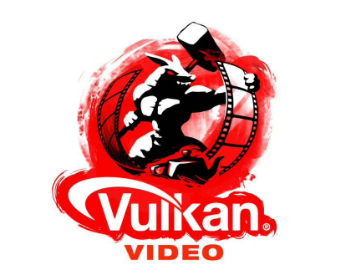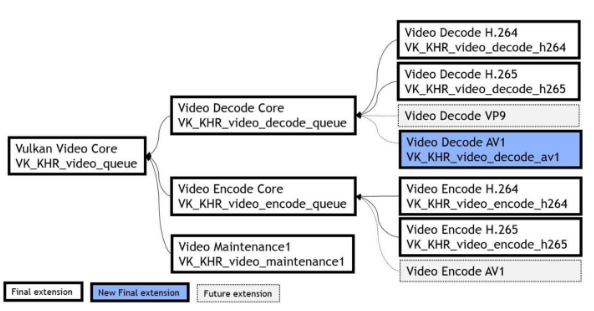
The Vulkan working group of Khronos Group recently announced a major update to Vulkan Video, including video format decoding and encoding capabilities. This update is reflected in the latest version of Vulkan 1.3.277, which most notably introduces the new Decode AV1 extension. This update will provide users with more efficient and high-quality video decoding and encoding functions, further enhancing Vulkan’s application potential in the field of video processing.

AV1 is a royalty-free video compression standard developed by the Alliance for Open Media (AOM). It excels in terms of performance and quality, and fits well with the core philosophy of the Vulkan project. The latest Vulkan Video update not only supports decoding and encoding of many popular multimedia frameworks such as GStreamer and FFmpeg, but also enhances compatibility support for Intel and AMD GPUs through the open source Vulkan driver RADV/ANV. This means users can play and process AV1 format video content more smoothly, whether on Intel or AMD GPUs. This will further promote the widespread application and popularity of AV1 and provide users with a better viewing and usage experience.

NVIDIA plays an important role in this open source initiative. They continue to improve Vulkan Video's sample code, demonstrating its practical application capabilities in Encode H.264/H.265 and the new Decode AV1 extension.
According to my understanding, the Vulkan working group has received extensive participation and support from the open source community in the process of developing the Vulkan video decoding AV1 extension. The initial idea for this expansion originally came from an expansion proposal put forward by Dave Airlie and Lynne Iribarren at the Mesa Project. During this process, Igalia did important test development work to ensure the consistency of the extension, while Collabora provided valuable feedback to help design the extension.
The above is the detailed content of Konas Vulkan working group launches new Decode AV1 extension to improve video decoding and encoding capabilities. For more information, please follow other related articles on the PHP Chinese website!




